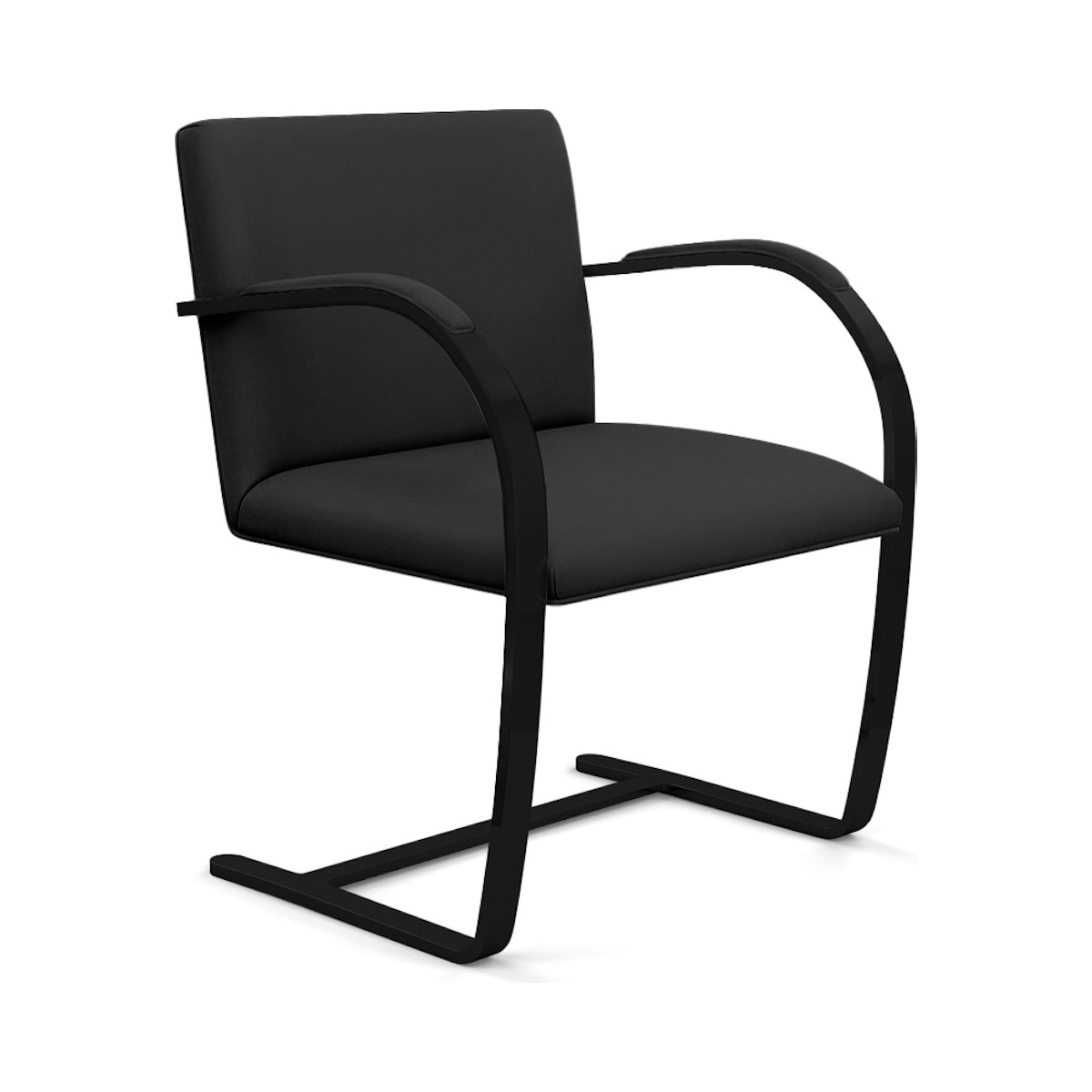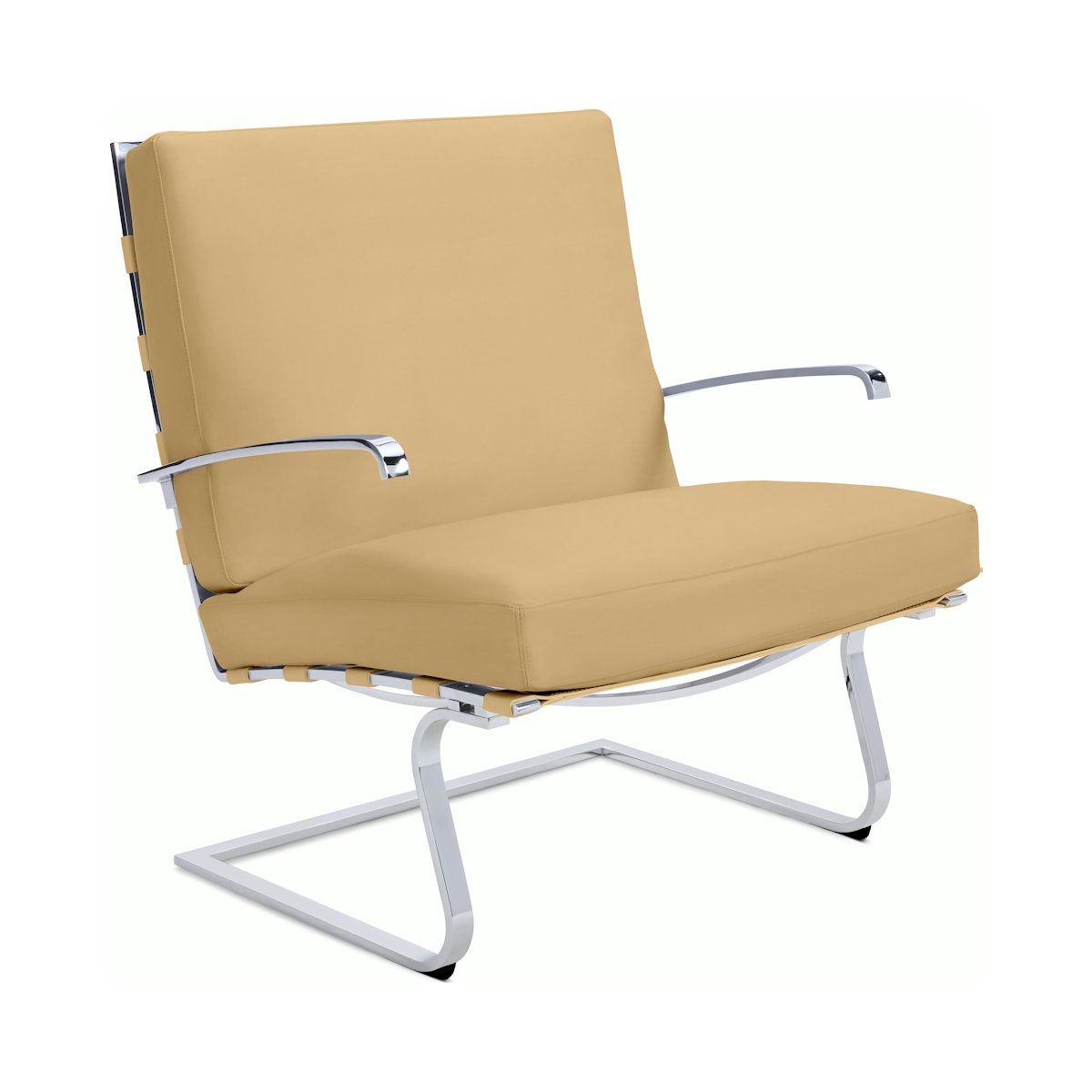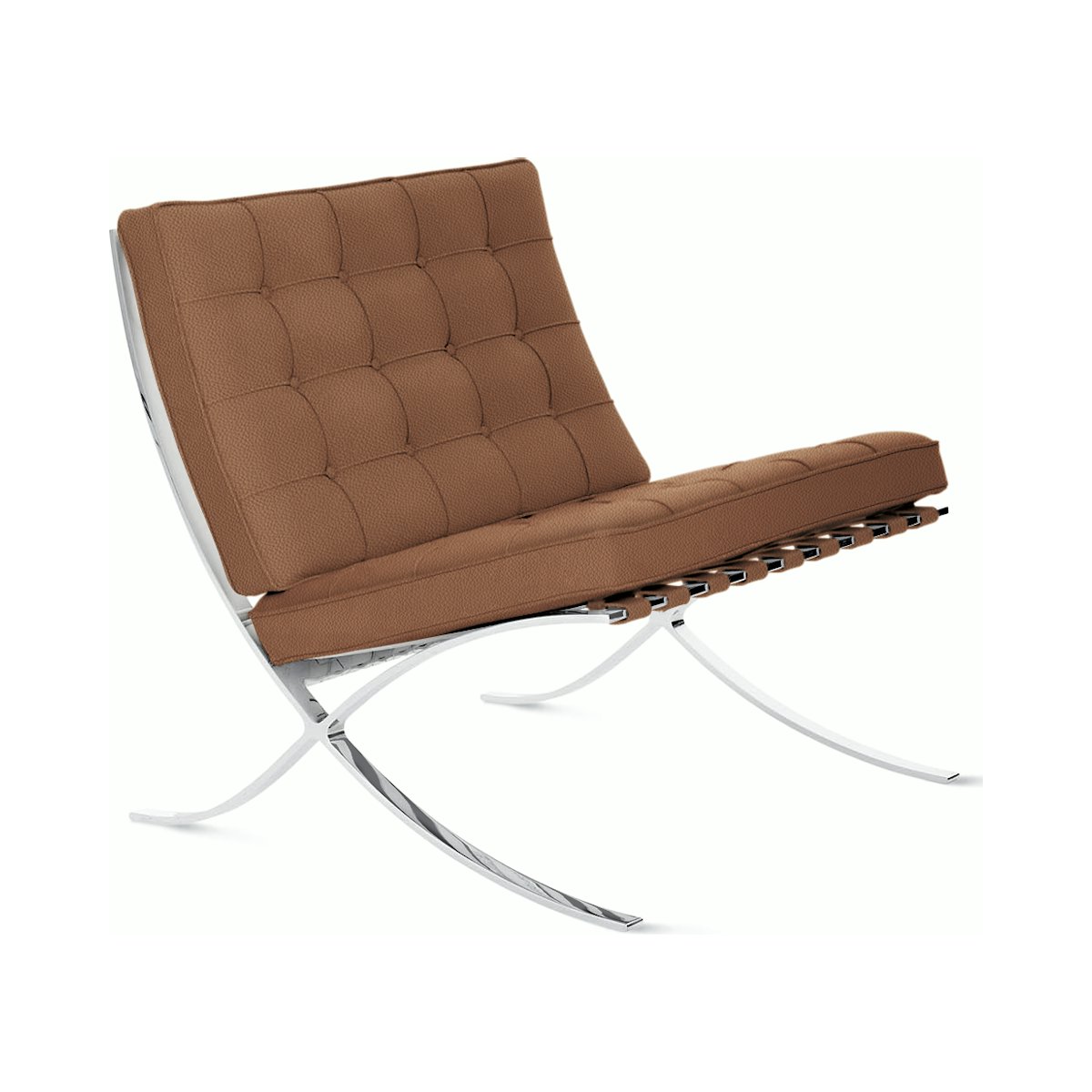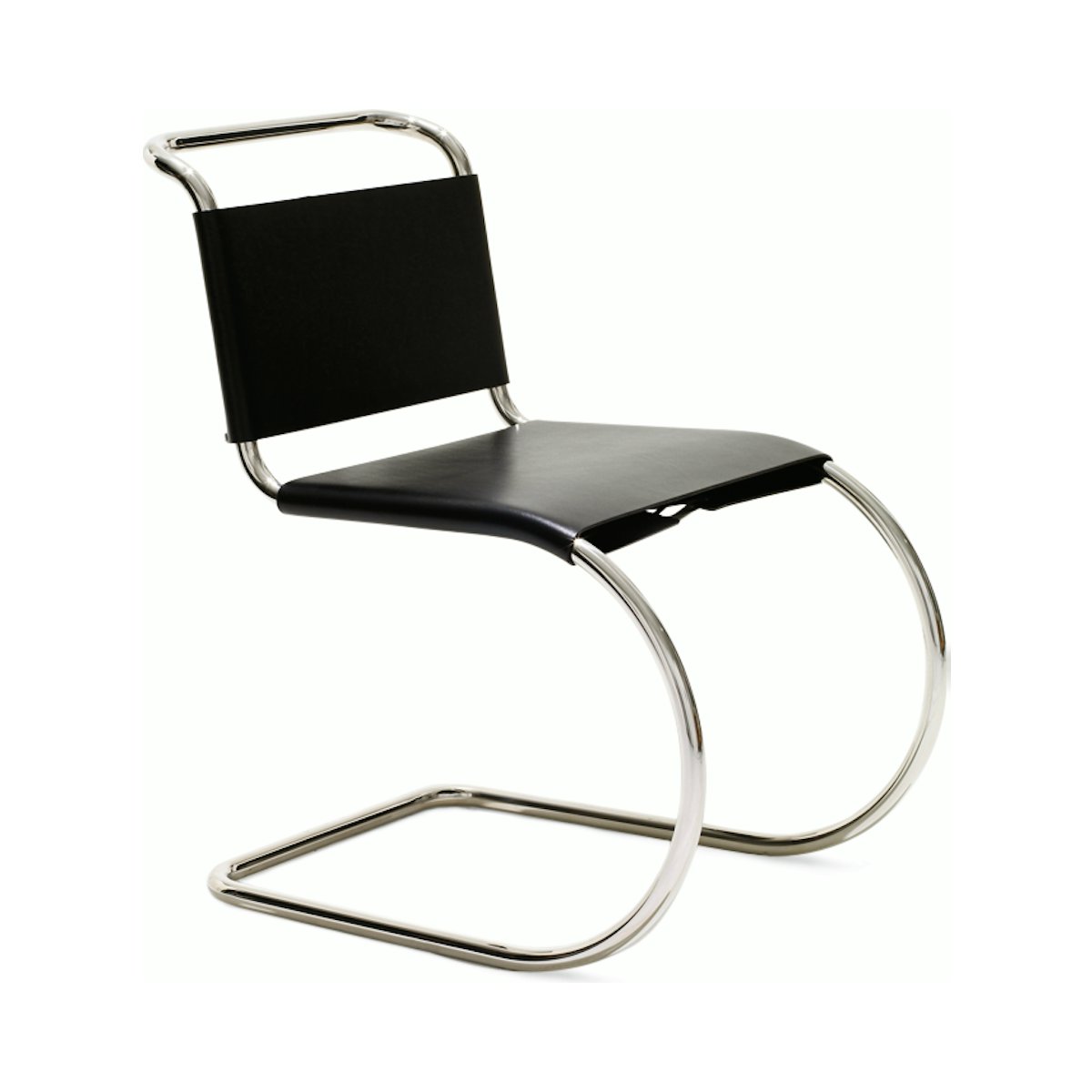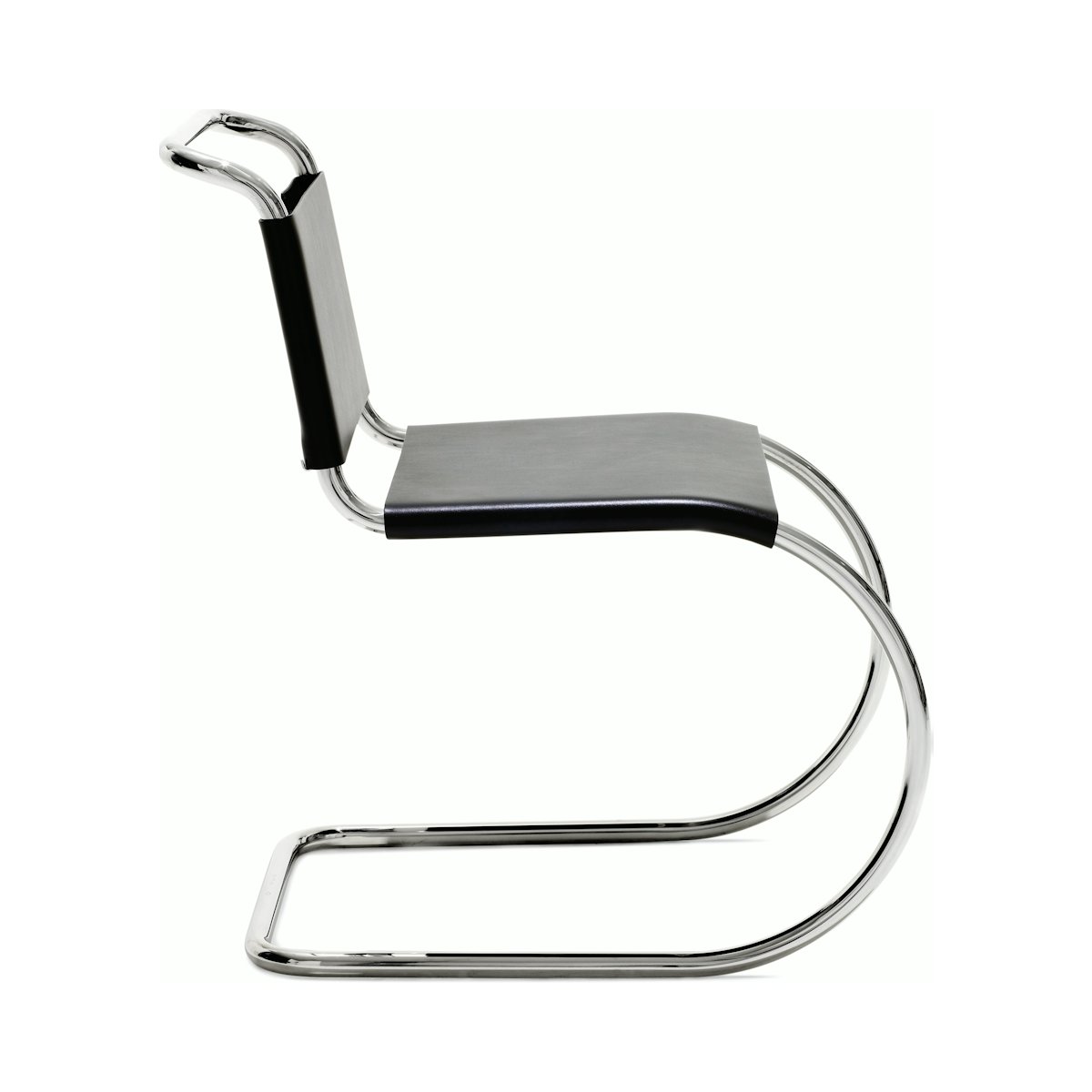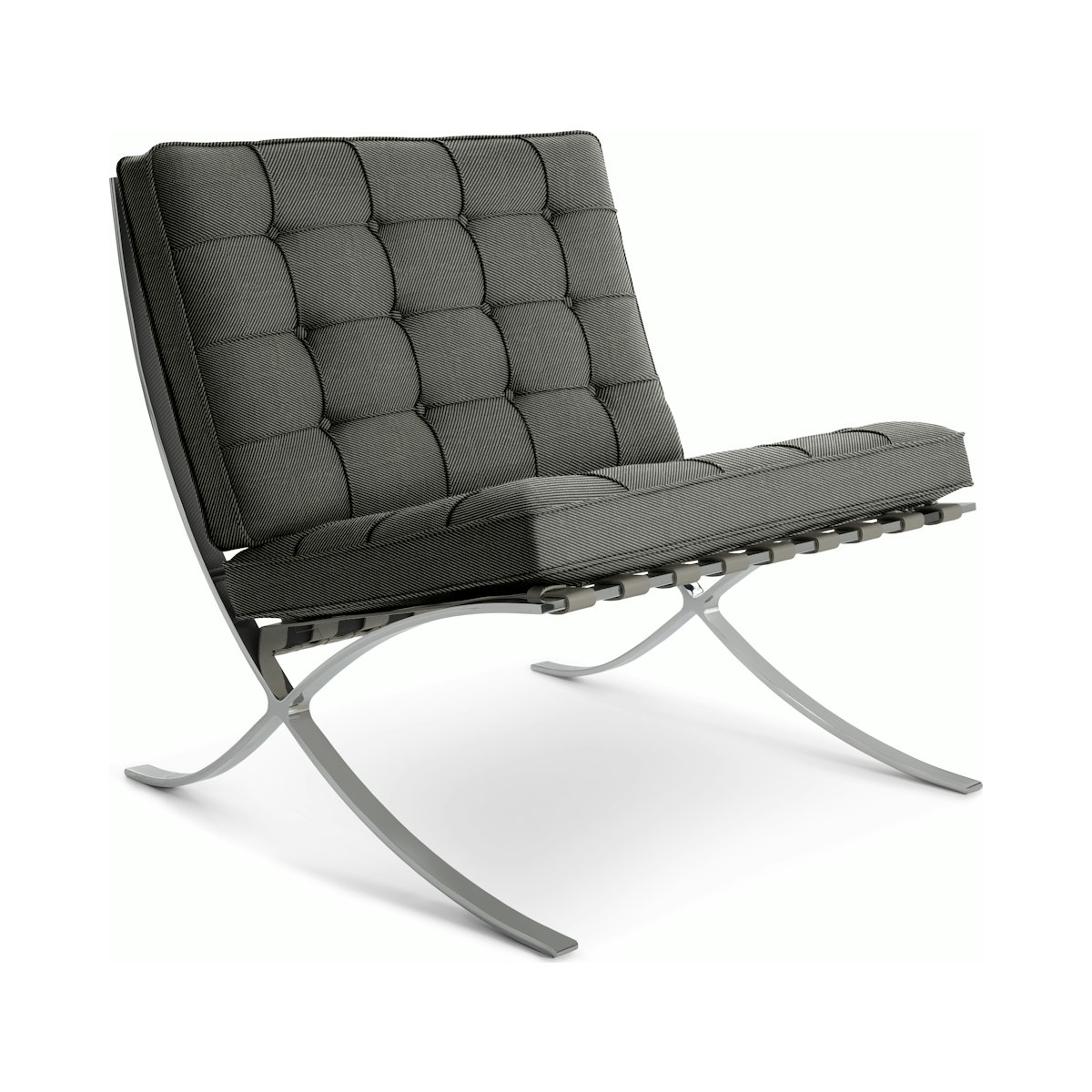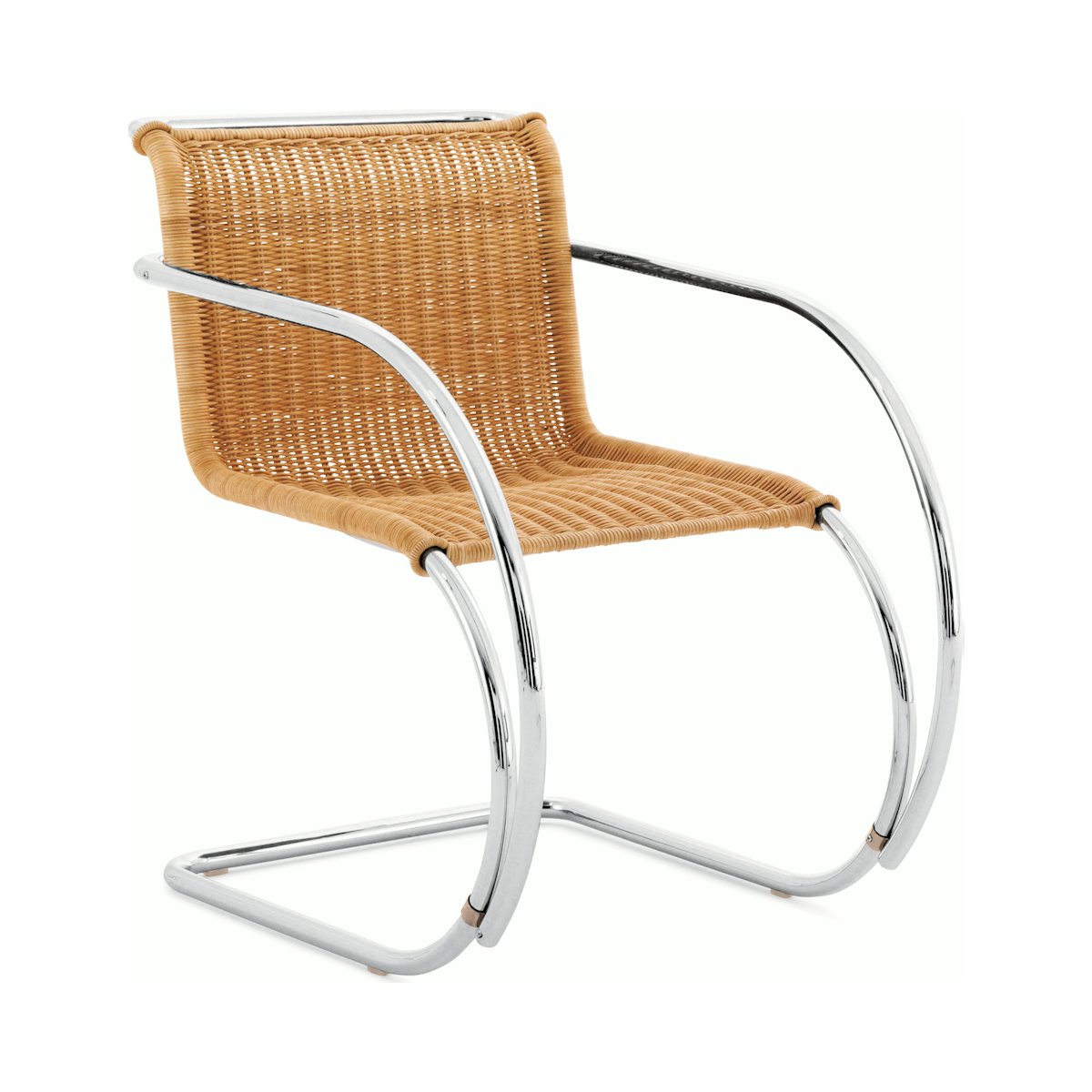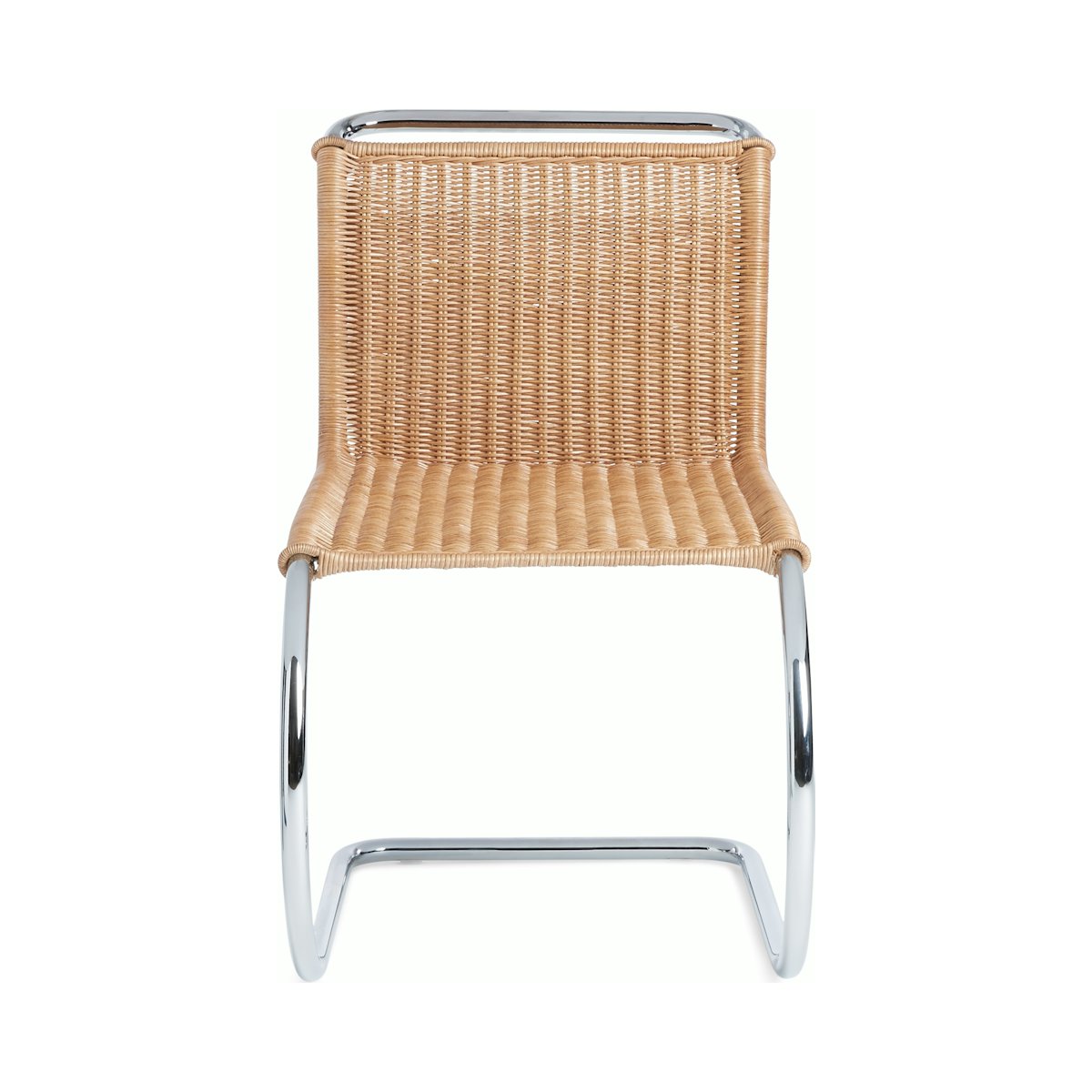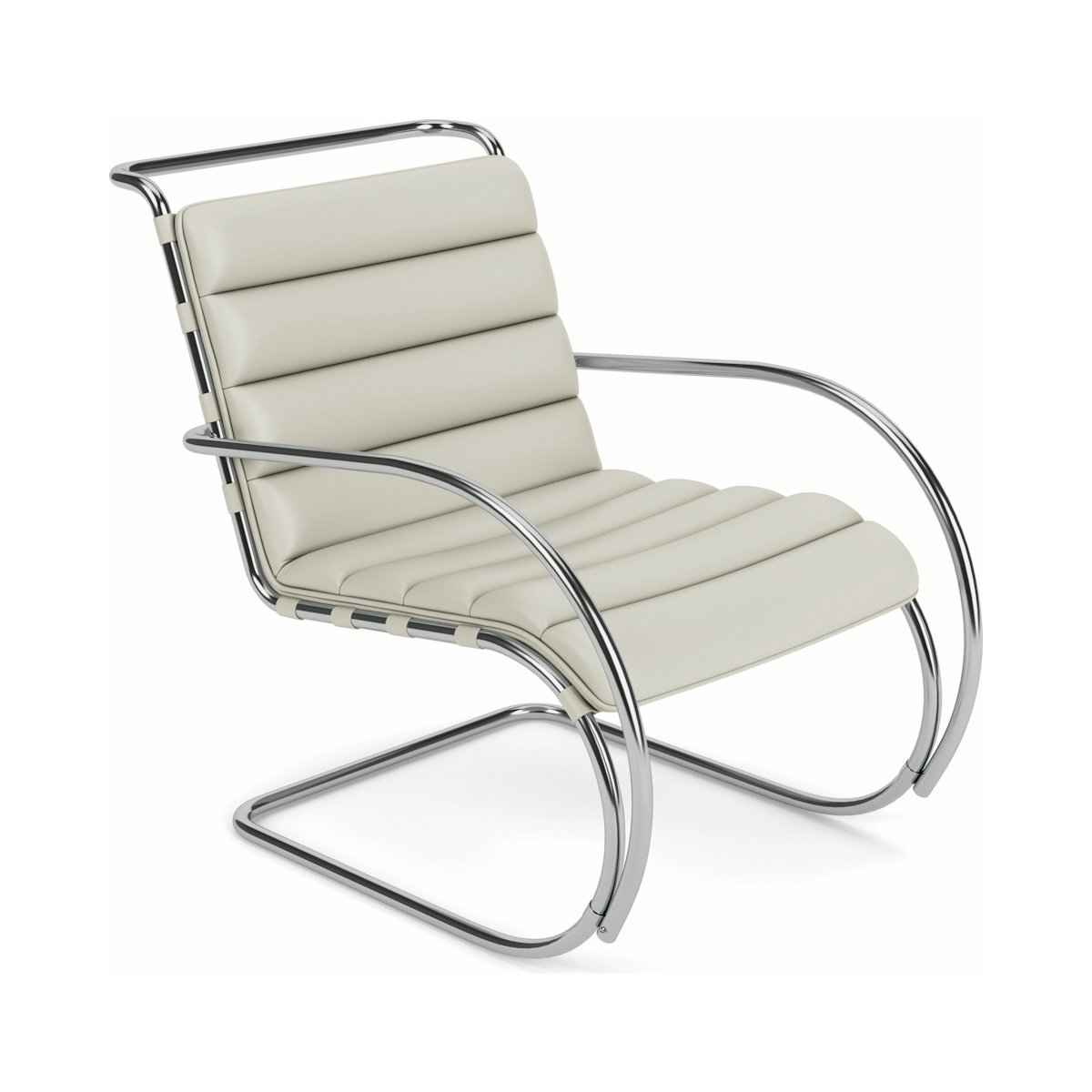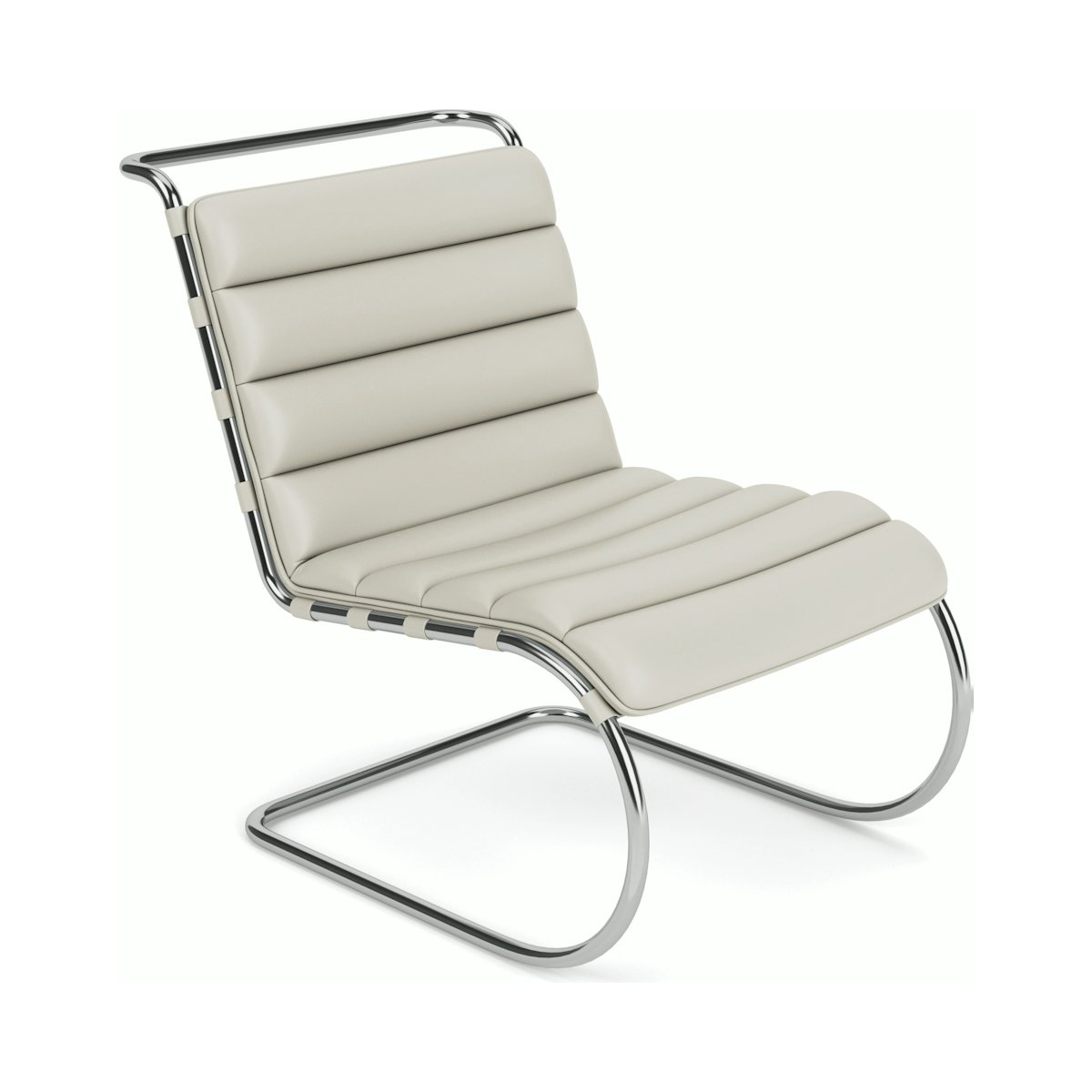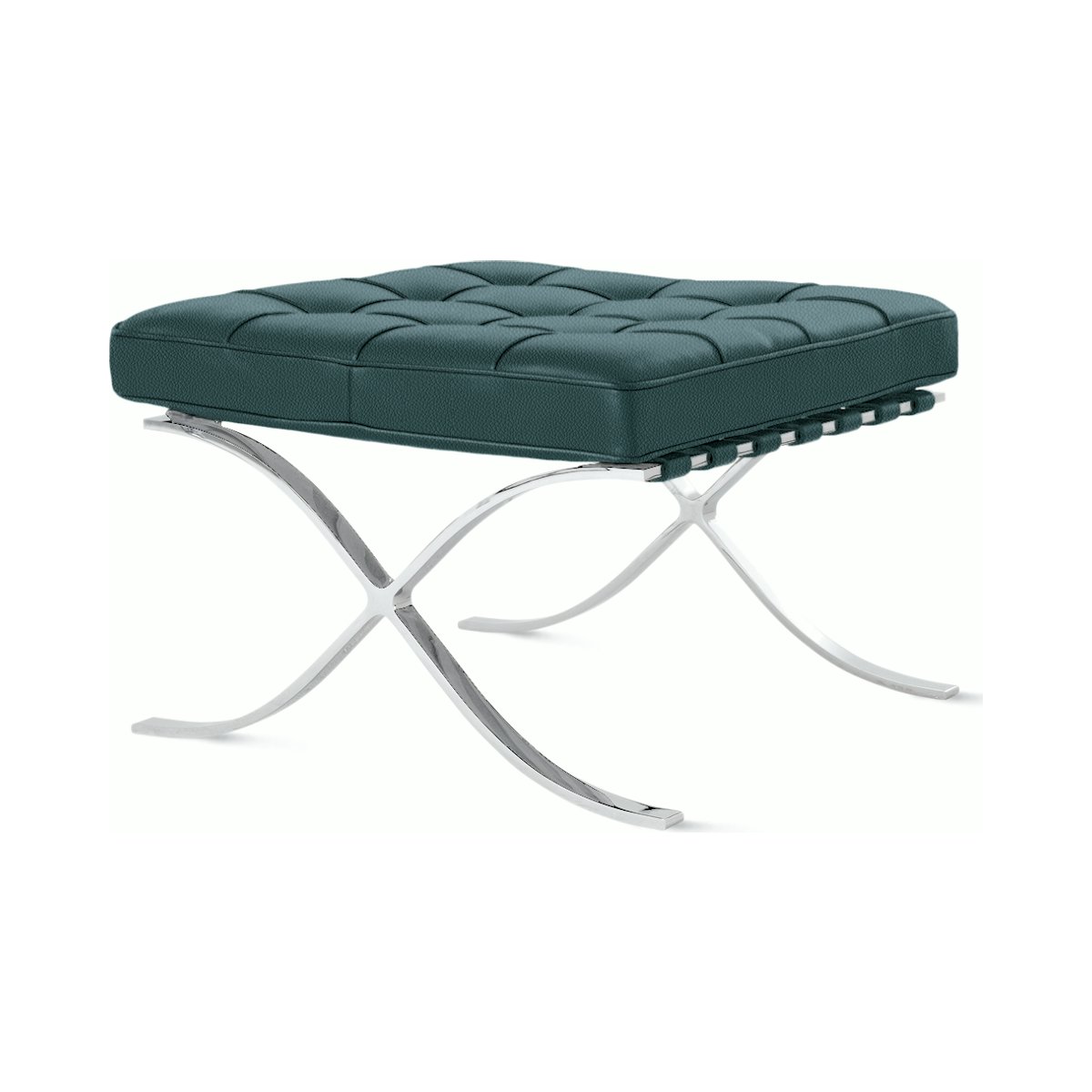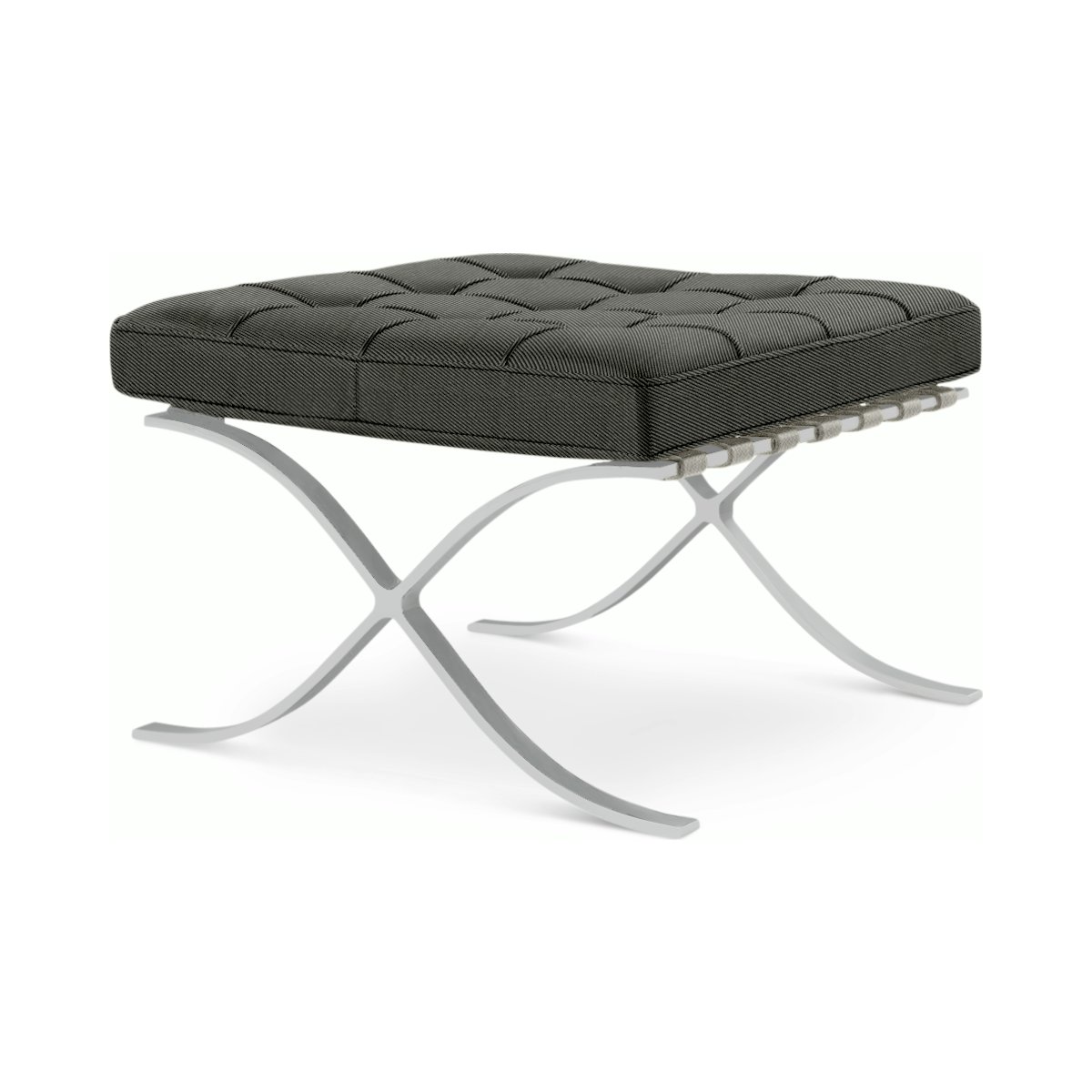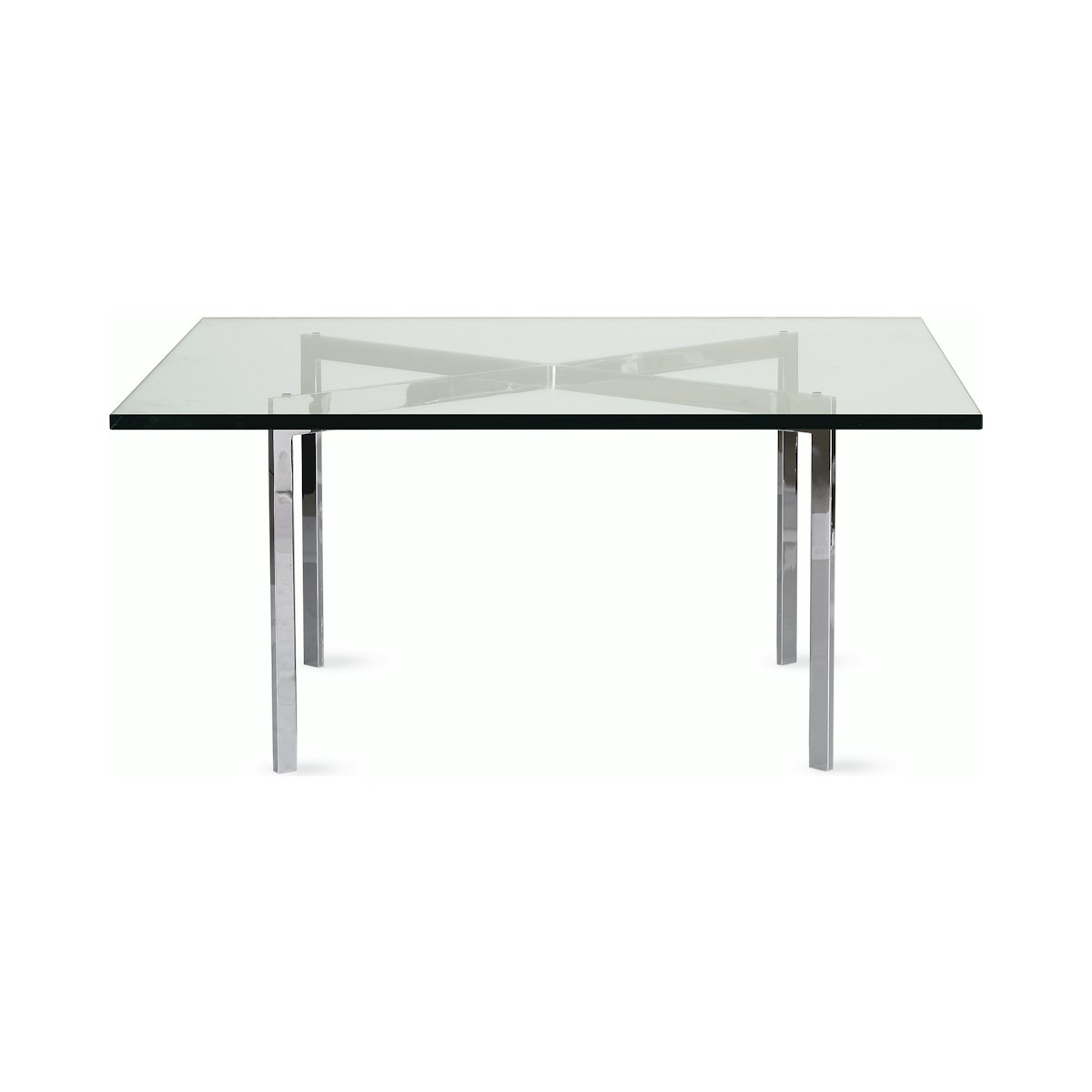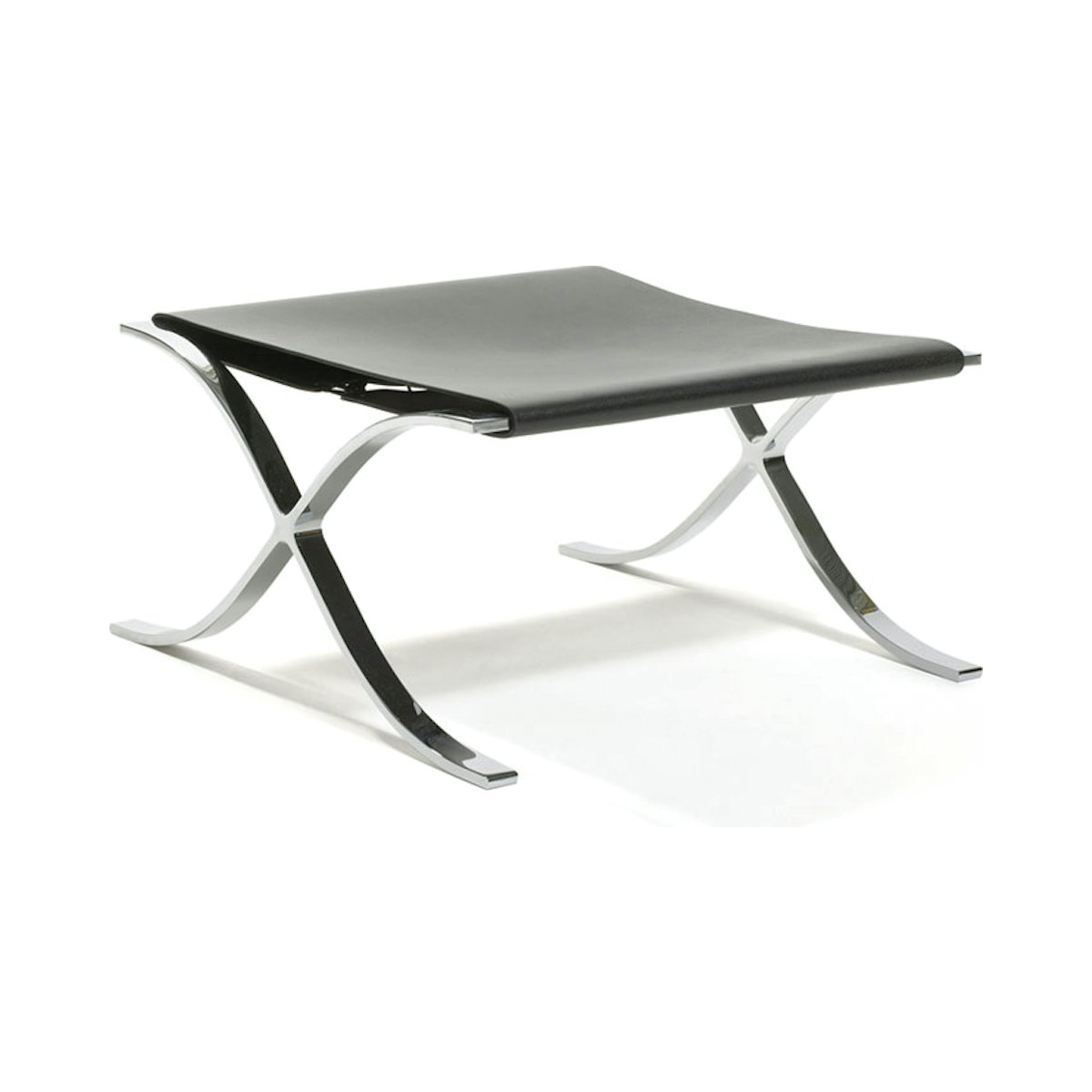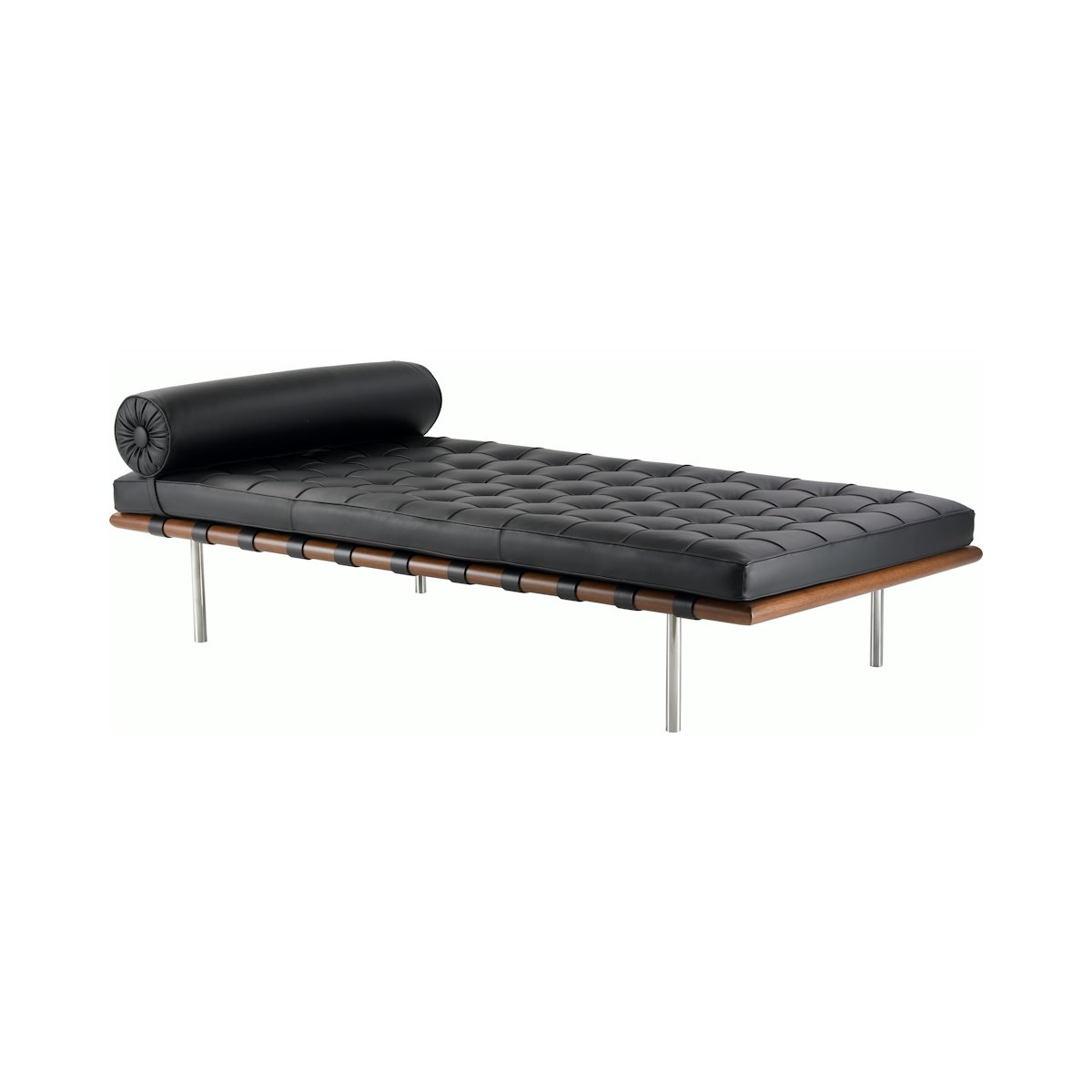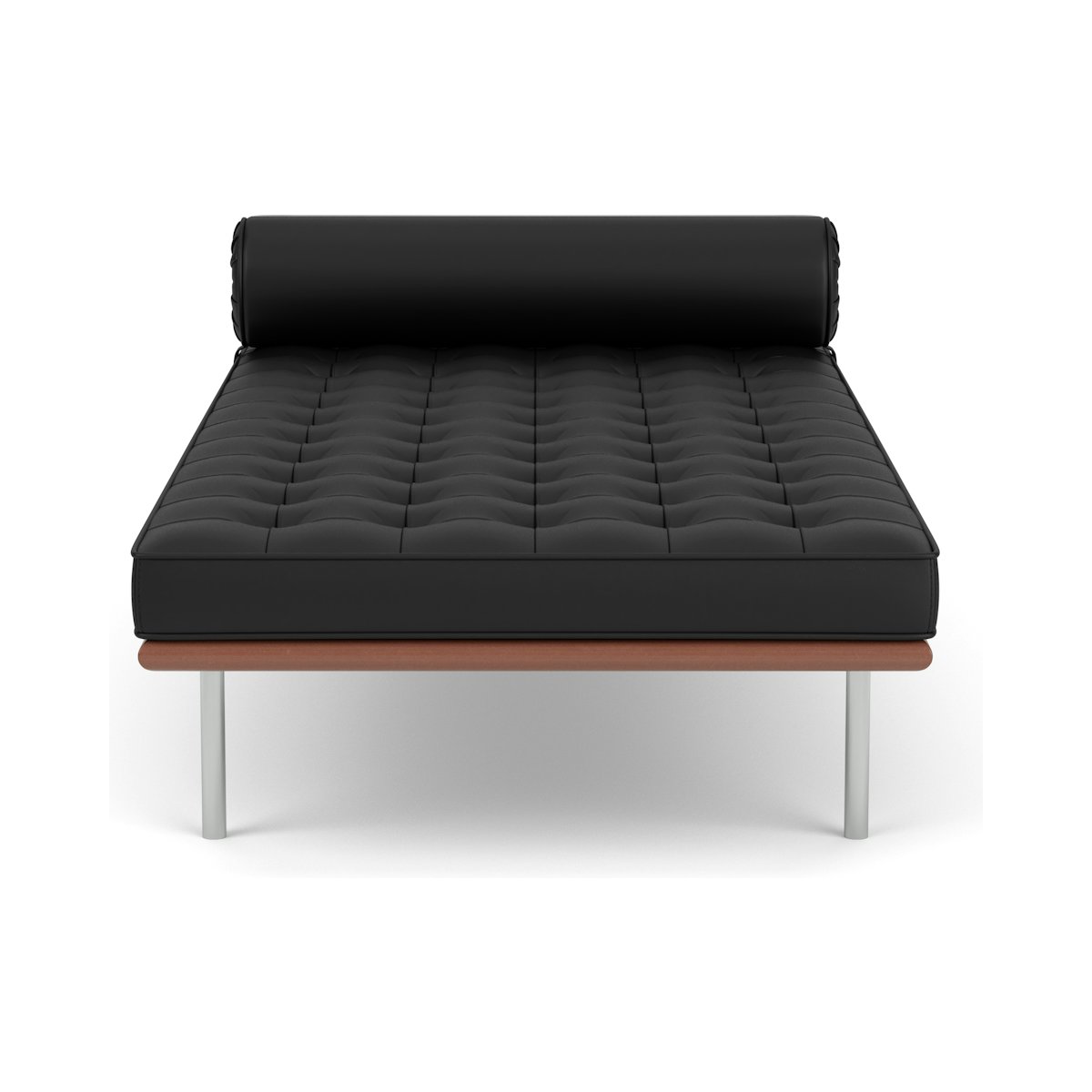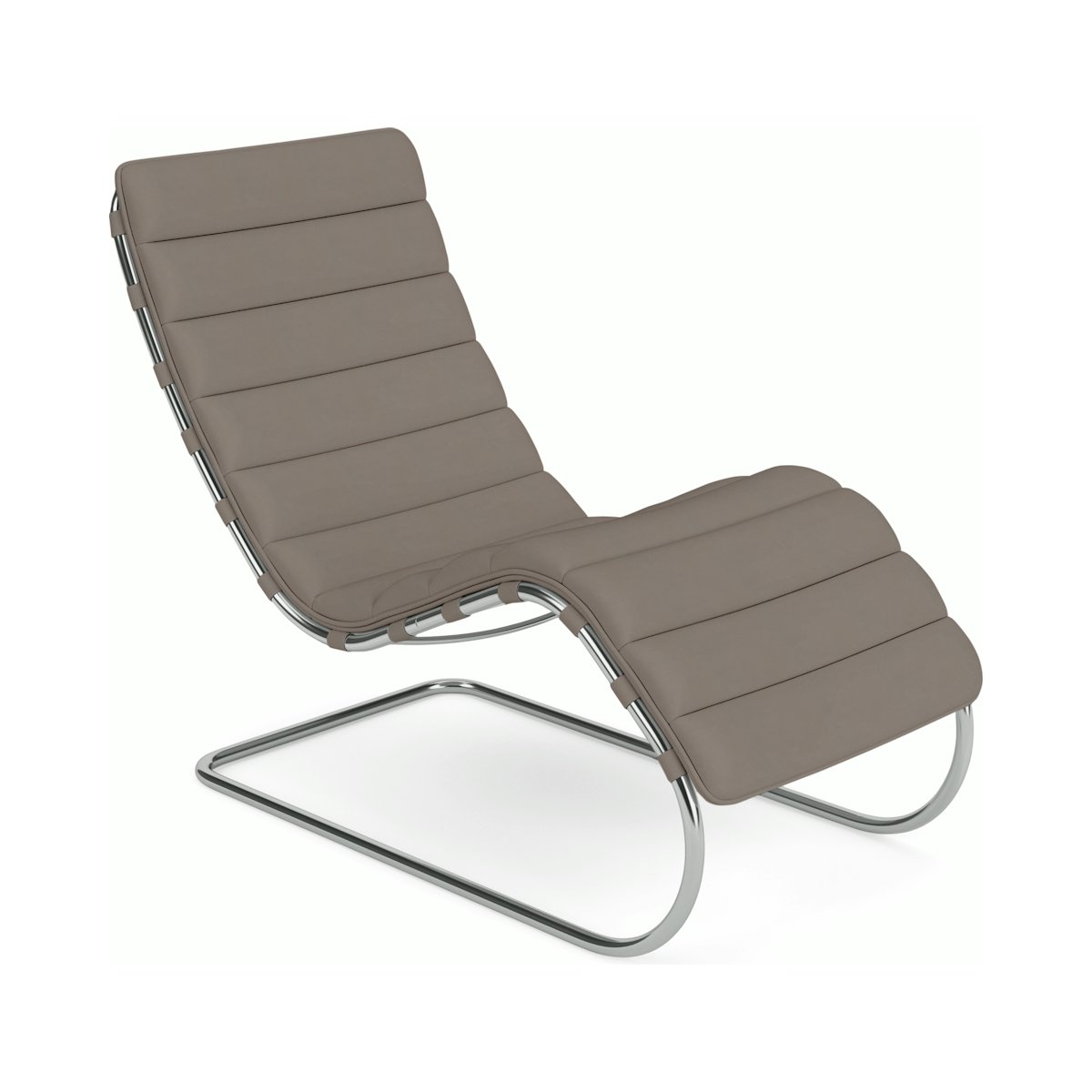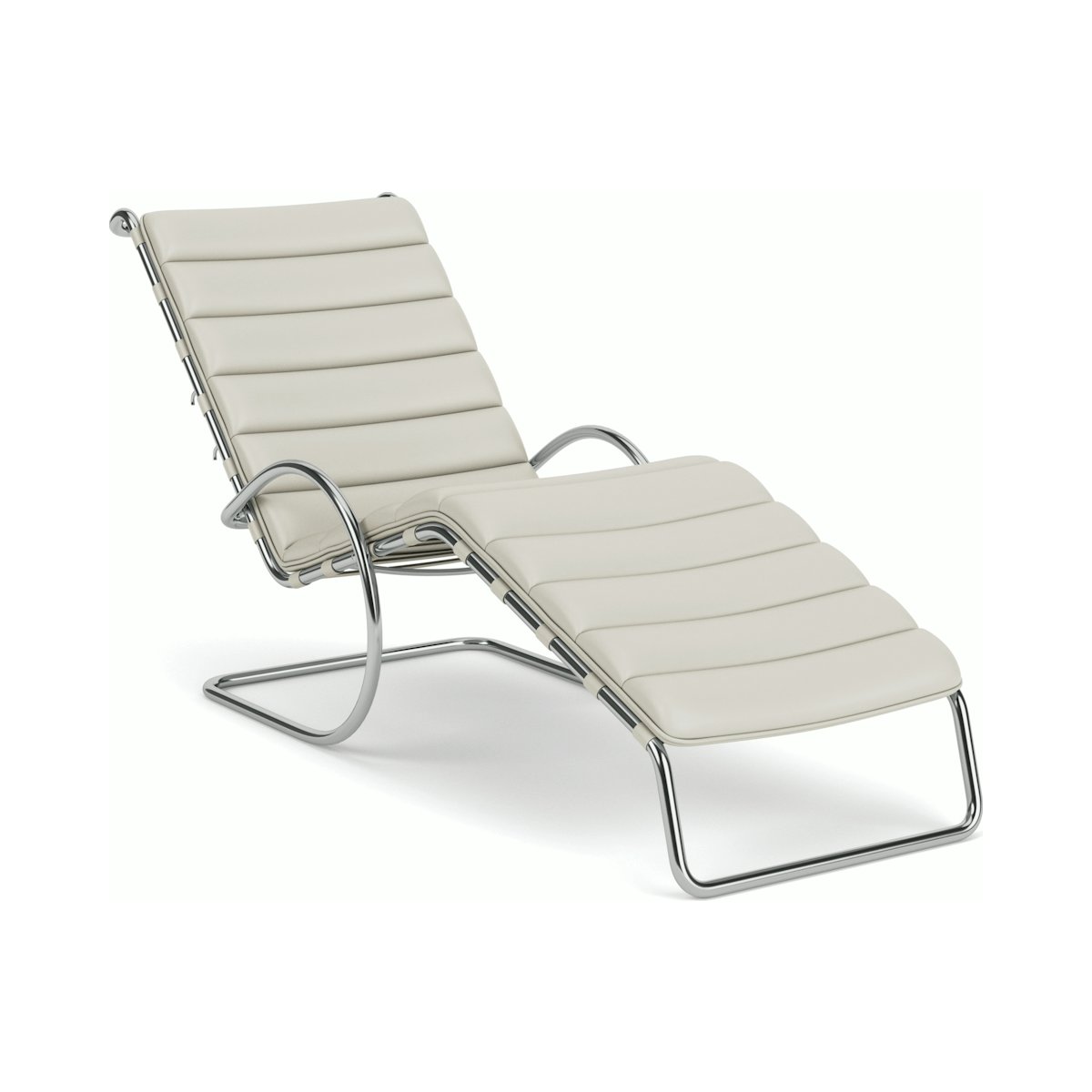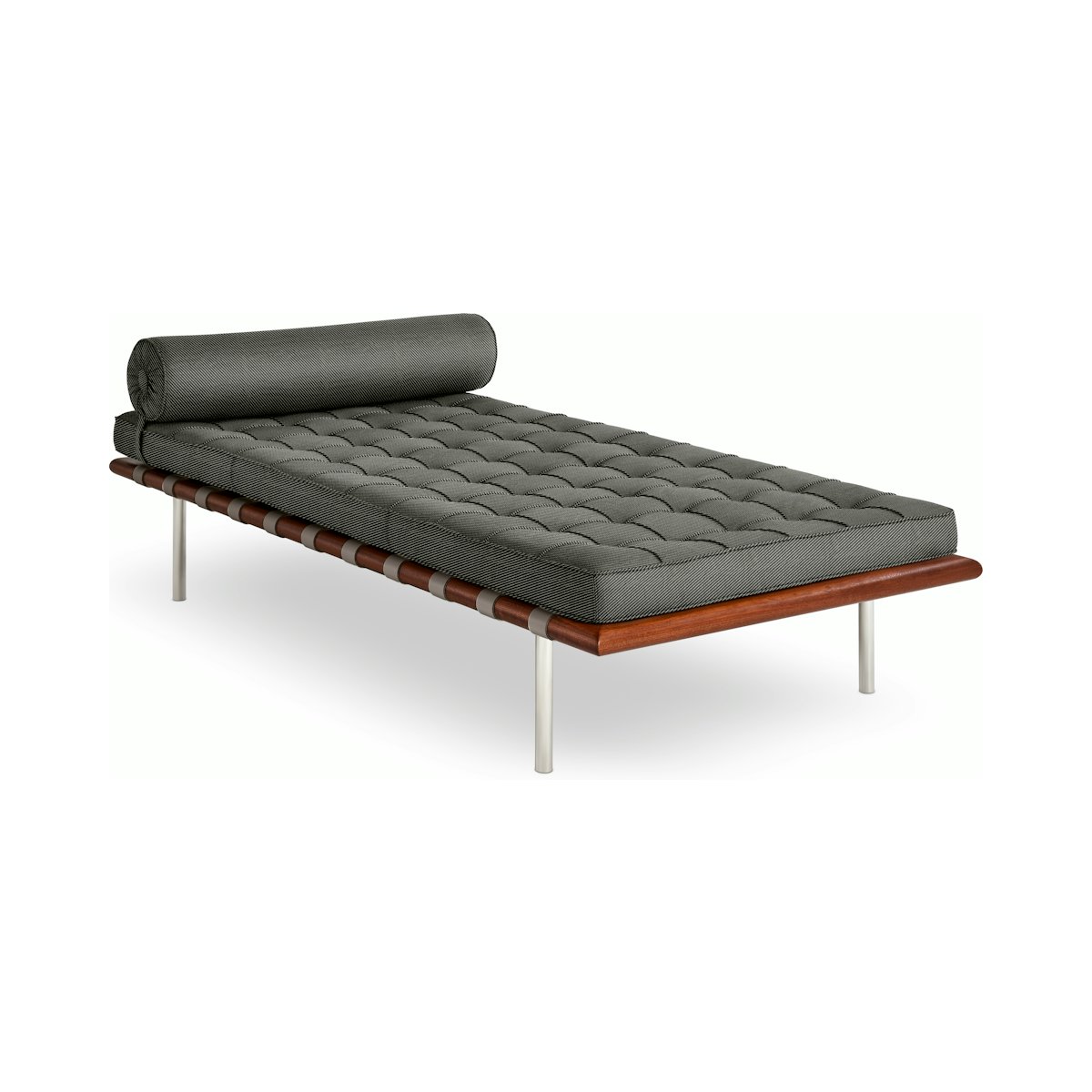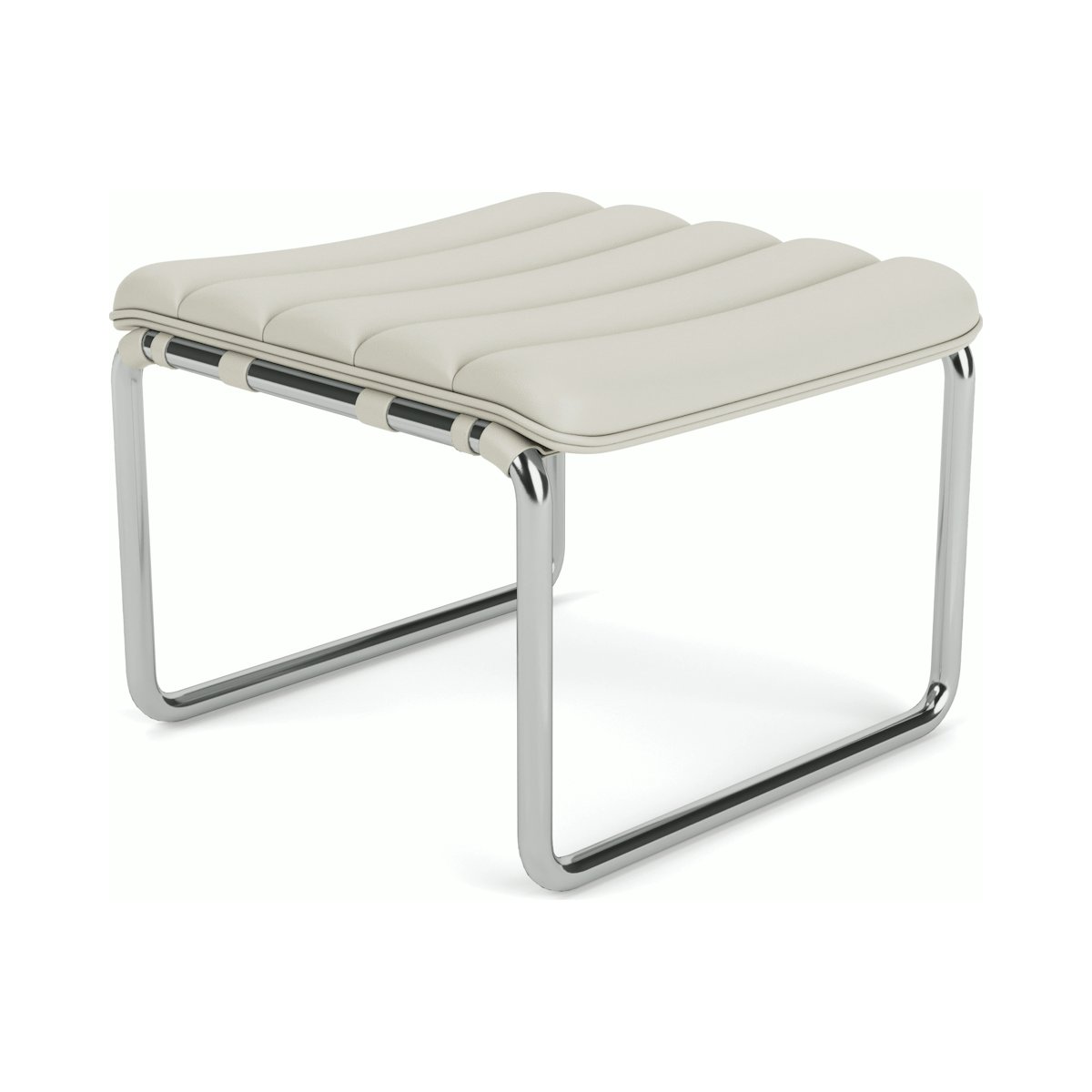Regarded as one of the most important figures in the history of architecture, Ludwig Mies van der Rohe’s less-is-more approach to design was the gold standard for many generations of modern architecture. His legendary career started humbly at his father’s stonemasonry business, giving him an early appreciation of material and structure. From there he apprenticed with furniture designer Bruno Paul in Berlin before joining the office of Peter Behrens, an architect and painter at the forefront of the modern movement.
In 1912, Mies established his own office in Berlin. Through furniture, residential projects and extraordinary, yet unrealized concepts for skyscrapers, he gained recognition as a leader of the German modern movement. As such, he was selected to design the German Pavilion at the 1929 International Exposition in Barcelona.
Mies served as Vice President of the Deutsher Werkbund and Director of the Bauhaus from 1930 until it closed in 1933. He immigrated to the United States in 1938 to become the director of architecture at the Armour Institute (later the Illinois Institute of Technology). From his Chicago-based practice, Mies designed a portfolio of buildings that changed the face of American institutional architecture – the most notable examples being the IIT campus and the Seagram Building in New York.
In 1912, Mies established his own office in Berlin. Through furniture, residential projects and extraordinary, yet unrealized concepts for skyscrapers, he gained recognition as a leader of the German modern movement. As such, he was selected to design the German Pavilion at the 1929 International Exposition in Barcelona.
Mies served as Vice President of the Deutsher Werkbund and Director of the Bauhaus from 1930 until it closed in 1933. He immigrated to the United States in 1938 to become the director of architecture at the Armour Institute (later the Illinois Institute of Technology). From his Chicago-based practice, Mies designed a portfolio of buildings that changed the face of American institutional architecture – the most notable examples being the IIT campus and the Seagram Building in New York.

21
Results
21
Results
View
New finishes
New finishes
Bestseller
Bestseller


